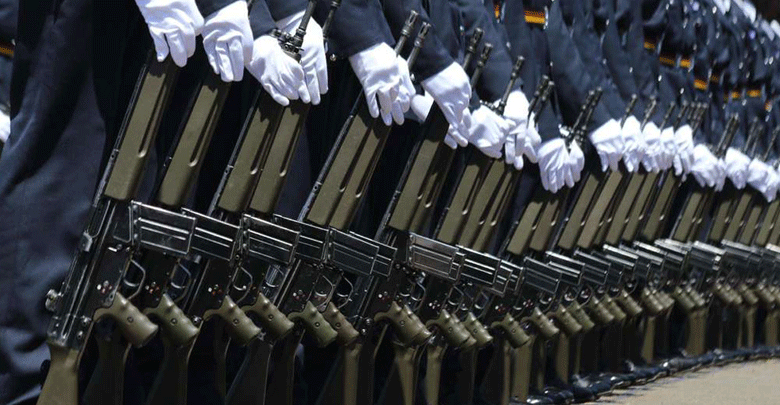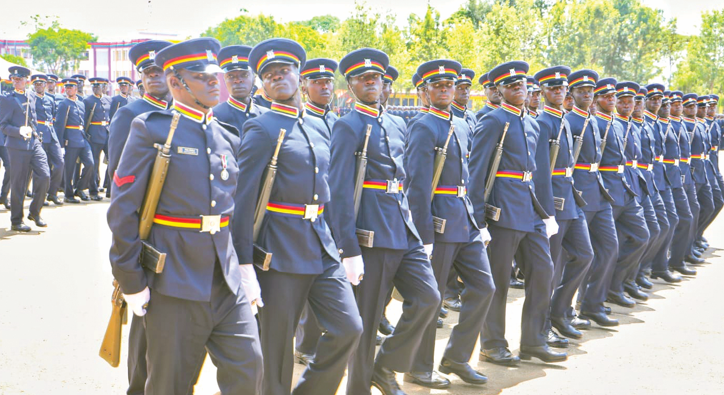Why stress and trauma push police to the edge

Last week’s action by Hudson Wakise to pump eight bullets into the body of his wife Pauline Wakasa has opened the lid on increasing mental anguish among police officers.
Wakise had been having domestic problems with his spouse and when she moved out of their matrimonial home, it marked the end of the Wakiwakas, as the couple was fondly referred to by family and friends.
Yesterday, the National Police Service Commission put out an advert for a manager counselling services, senior counsellor, counsellor and social workers in an effort to rein in the malaise affecting the force.
A peek through the life and times of officers exposes a routine of stressful conditions: The officers come across abuse, domestic violence, homicides and horrific car crashes.
At times they are sent to keep law and order in areas where they brutally engage with rioters.
Repeated exposure to these stressors and events has in most cases been associated with developmental or critical conditions which include; somatisation, burnout, depression and anxiety.
And after the exposure many are left to their own devices and as Interior Cabinet Secretary Fred Matiang’i noted.
“I am deeply pained by the tragic incident involving PC Hudson Wakise and his wife PC Pauline Wakasa, both young and vibrant police officers with brilliant futures tragically ended in their shocking demise.
It’s a rude awakening to psychosocial challenges amongst some of our young officers that we have no choice but to now pay greater attention to.”
In 2017, a counselling programme among the police was unveiled on a pilot basis. It examined the cycle of violence, trauma, resilience and healing and provides police officers with mechanisms of developing trauma-informed skills, which enhance their mental wellness.
Later in 2019, the programme was launched, dubbed Muamko Mpya – which is an adaptation of Kumekucha for the Kenyan National Police Service and other security sectors in the country. Its role?
Building on Kumekucha and examines the cycle of violence, trauma, resilience and healing among members of the police force.
Documents retrieved from Green String Network, a multi-disciplinary team of peace-builders, community development workers, psychologists and researchers who design trauma-informed interventions and methods for their evaluation, show their main focus as addressing trauma as one of the root causes of violent behaviour.
This is the company tasked with dealing with police officers who undergo psychological disorders.
“Police officers are also exposed to stress inherent in their jobs which is considered customary, but which exceeds stress inherent in most other professions.
For example, police respond to every suicide, every murder, and every fatal car accident. Arguably, they are routinely exposed to more death and trauma than troops of war.
Their lives are often endangered. The effects of trauma are often ignored, resulting in high levels of suicide, divorce and addictions,” a statement about the issue reads.
It further reveals that police officers work under constant stress and pressure – they are often underappreciated yet they help make the communities safer.
It is to this effect that the Inspector General’s office engaged the company for the betterment of the officers.
According to Green String Network, which was registered in 2016, many police officers suffer from effects of trauma and post-traumatic stress disorder which is characterised by failure to recover after experiencing or witnessing a terrifying event.
It becomes difficult for the victims to heal especially police officers as they are reluctant or are not allowed to share their experiences.
“Therefore, it is to this effect that Muamko Mpya seeks to strengthen the social fabric of communities by providing police officers with tools for re-examination of traumatic events and supports the development of trauma-informed skills to enhance mental wellbeing and resilience,” it states.
Peer support programme
Speaking to People Daily, Dr Angi Maina, the CEO of Green String Network, said for the last two years 500 police officers had gone through the Mwamko Mpya programme which is also supervised by the office of the Inspector General of Police.
“Our main concern is to respond to the challenging trauma situations that police officers are exposed to.
Our next plan is to bring a peer support programme to the ward level,” Dr Maina said.
She said that by bringing the services to the ward level, it will be a cost-effective way of offering trauma information support to the officers at grassroots level.
In a research dubbed ‘Counselling Interventions and the Use of Counselling Skills in Police Service in Kenya’, Dr Geoffrey Wango, Dr Gidraph Wairire and Dr Luke Odiemo, all of the University of Nairobi, say that employees in Kenya including police officers are increasingly showing acute signs of burnout.
According to them, it is widely acknowledged the world over that policing is one of the most stressful professions.
“Cases of death through shooting or suicide have been reported, and have lately been on the increase.
Frontline police officers often have to confront traumatising incidents almost on a daily basis which can lead to psychological and emotional disturbance,” the research says.
It calls upon officers and the public to be wary of high levels of anxiety, which can be handled through expanded, effective coping strategies such as workplace counselling.
Another research dubbed ‘Psychosocial Challenges Faced by Retired Police Officers; A Case of Retired Administration Police Officers in Kenya’ conducted by David Sirera and Anne Mwenje, states that retired police officers go through a lot due to the nature of the work they did while in service.
The descriptive survey that was conducted by the use of questionnaire and face-to-face interviews collected data from police retirees who had left the service between 1998 and 2008.
“The results of the study show that due to the nature of the police work and the police subculture, the officers hardly plan for their retirement hence find it difficult to adjust to life in the civilian world.
It also found out that there is no psychological support system in the force that helps the officers deal with psychological challenges while on duty,” the research found.
The study stated that this sees officers carry into retirement work related stressors that impact negatively on their psychosocial well-being when outside the service.
It calls for a psychological support system for police officers during active service and in life after active service.
Police officers’ stories
The gun toting officer who killed 8 colleagues, affecting work-mates who sought counselling services
On July 14, 2016, at around 4am, a police officer identified as Abdilhakim Maslah arrived at Kapenguria Police Station for his shift only to pick up a gun and go on a shooting spree killing seven of his colleagues, including a hostage response team member.
When the reports of a shoot-out emerged, police thought they were engaging a suspected recruiter for al- Shabaab, a terrorist group that is based in Somalia. They did not know it was one of their own suffering from mental problems.
It later emerged that the officer was an officer attached to the same station and his colleagues described him as a disgruntled officer.
Officers’ privy to the matter, who spoke to People Daily in confidence as they are not authorised to speak to the media said the station’s police boss regretted the act saying that they could have done better in ensuring that he did well.
“He at times could talk to himself and what even made us get worried was that he never liked to stay with other officers. He was a known lone ranger,” an officer said.
Police officer who shot wife six times, affecting colleague
On January 5, 2018 – a police officer attached to a police station in Naivasha was arrested after he shot and killed his girlfriend following a heated argument.
The junior officer (identity withheld) shot the woman with whom he had lived with for more than two years, six times on the stomach using an AK-47 rifle before he was disarmed.
In court documents and witnesses, neighbours said the couple was fond of arguing. On the fateful day, neighbours had screams with the lady demanding to leave before gunshots rented the air in the incident that took place at 11pm.
Among the first officers who arrived at the house to rescue the woman said that he had undergone a lot but when he started the counselling sessions things started working out.
“The incident really affected me and at times I could see an image of the woman lying in a pool of blood in that house. However, things have started working out and I believe I will advise my colleagues to come to such sessions when they feel low,” he said.
Police officer who shot wife 11 times, affecting colleague
Another officer shot his wife 11 times killing her on the spot. The officer was a victim of domestic abuse as the wife, who had a well-built body, could at times beat him up, making the matter a talk of town.
One officer who investigated the case said his colleague looked disturbed: “It was something that took place every evening and one day he was so irritated that he decided to shoot her dead, 11 times,” said the officer whose identity is withheld.
The officer, who closely interacted with the convicted murderer, said that he wishes he could have learnt that his colleague had a domestic problem and helped him in time.
Part two read about the thoughts behind the police counselling program and how it is impacting lives of officers.
Recent violent incidents Involving police officers











